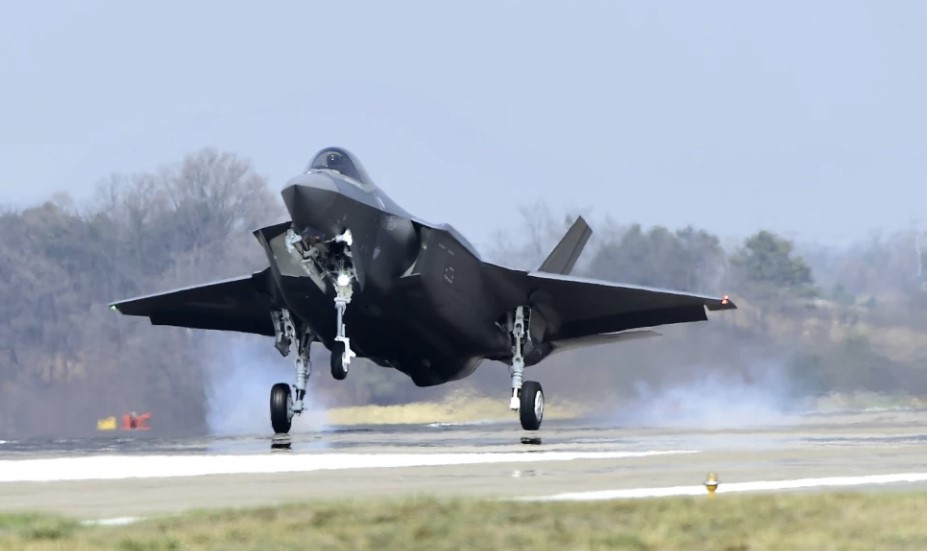In 2017, Turkey made a dramatic decision that reshaped its defense ties with the United States. Ignoring repeated American warnings, Ankara purchased the Russian-made S-400 Triumf air defense system — one of the most advanced anti-aircraft weapons in the world. At that time, Turkish leaders hailed it as a symbol of independence and a strong message to Washington that the country had other defense options beyond NATO partners.
S-400 Deal: A Bold Move That Turned Into a Strategic Setback
However, the S-400 decision came with a heavy cost. The U.S. quickly removed Turkey from the F-35 Lightning II Joint Strike Fighter program, a partnership it had joined in 1999. This exclusion halted Turkey’s access to fifth-generation stealth technology and blocked its defense companies from participating in global F-35 production contracts.
To counter this setback, Ankara announced plans to develop its own stealth fighter, the KAAN, and to upgrade its aging F-16 fleet independently. Turkey claimed that the KAAN would eventually compete with the F-35, and several countries — including Saudi Arabia, the UAE, and Pakistan — expressed early interest.
Moscow reports S-400 defense shooting down nearly two dozen NATO-supplied missiles
For a while, the strategy appeared successful. But eight years later, Turkey’s ambitions are faltering. The country is now actively seeking second-hand fighter jets from Middle Eastern allies — a clear signal of growing pressure to maintain air superiority. The S-400 gamble, once seen as a demonstration of power, now appears to have backfired.
S-400 Fallout: Turkey’s Search for Used Eurofighters and F-16s
The aftermath of the S-400 purchase continues to shape Turkey’s defense strategy. The country is currently negotiating with Qatar and Oman to buy used Eurofighter Typhoon jets — a move intended to fill the gap until the KAAN becomes operational. These discussions followed high-level diplomatic visits to the Gulf region, reflecting Ankara’s urgent efforts to rebuild its air strength.
The Eurofighter Typhoon, developed by the United Kingdom, Germany, Spain, and Italy, is a highly capable 4.5-generation multirole fighter. But even acquiring used versions is complicated. Any sale requires approval from all four partner nations. Germany has previously opposed such deals with Turkey due to political concerns, which makes the process even slower.
Reports suggest that if approved, Turkey could receive around 28 Eurofighters from Qatar and Oman in the coming years. This would provide much-needed reinforcement for its air fleet, which has been struggling with aging aircraft and slow progress in domestic fighter production.
U.S. softens on S-400 standoff — Türkiye’s F-35 return back on the table
In parallel, Turkey is also seeking to purchase new F-16s from the United States to modernize its existing fleet. However, these negotiations remain constrained by U.S. sanctions imposed under the Countering America’s Adversaries Through Sanctions Act (CAATSA) — penalties introduced specifically after the S-400 deal. These sanctions have restricted Turkey’s access to advanced U.S. defense technology.
Turkey is also attempting to rejoin the F-35 program by seeking a presidential waiver from CAATSA sanctions. Despite ongoing talks, no final decision has been reached. The situation shows how the S-400 purchase continues to influence Turkey’s foreign and defense policy years after the original deal.
What was once intended as a show of strategic autonomy has now turned into a complex juggling act involving multiple nations — from the United States and the United Kingdom to Qatar and Oman — as Turkey strives to maintain operational readiness.
Losing Regional Airpower Edge Despite Investment
Despite investing heavily in the S-400, Turkey’s regional airpower is steadily weakening. Once a dominant military force in the Mediterranean and the Middle East, Ankara is now losing ground to rivals that have embraced more advanced aircraft.
Israel operates the F-35I “Adir,” a stealth jet customized for superior electronic warfare and long-range operations. With 46 in service and plans to expand to 75 by 2030, Israel’s air force now holds a clear technological edge.
🛑 S-400 failure? 39 drones breach defenses as explosions rock Sochi Oil Depot in overnight assault
Greece has also modernized rapidly, adding French Rafale jets and ordering 20 F-35A fighters, which will give it a strong mix of fourth and fifth-generation aircraft. In contrast, Turkey still relies on aging F-16s, many nearing the end of their service life.
The S-400, though capable of intercepting threats up to 400 kilometers away, cannot integrate with NATO’s defense networks due to its Russian design. Eight years after its purchase, the S-400 has isolated Turkey from the F-35 program and forced it to depend on second-hand jets to sustain its airpower balance.
